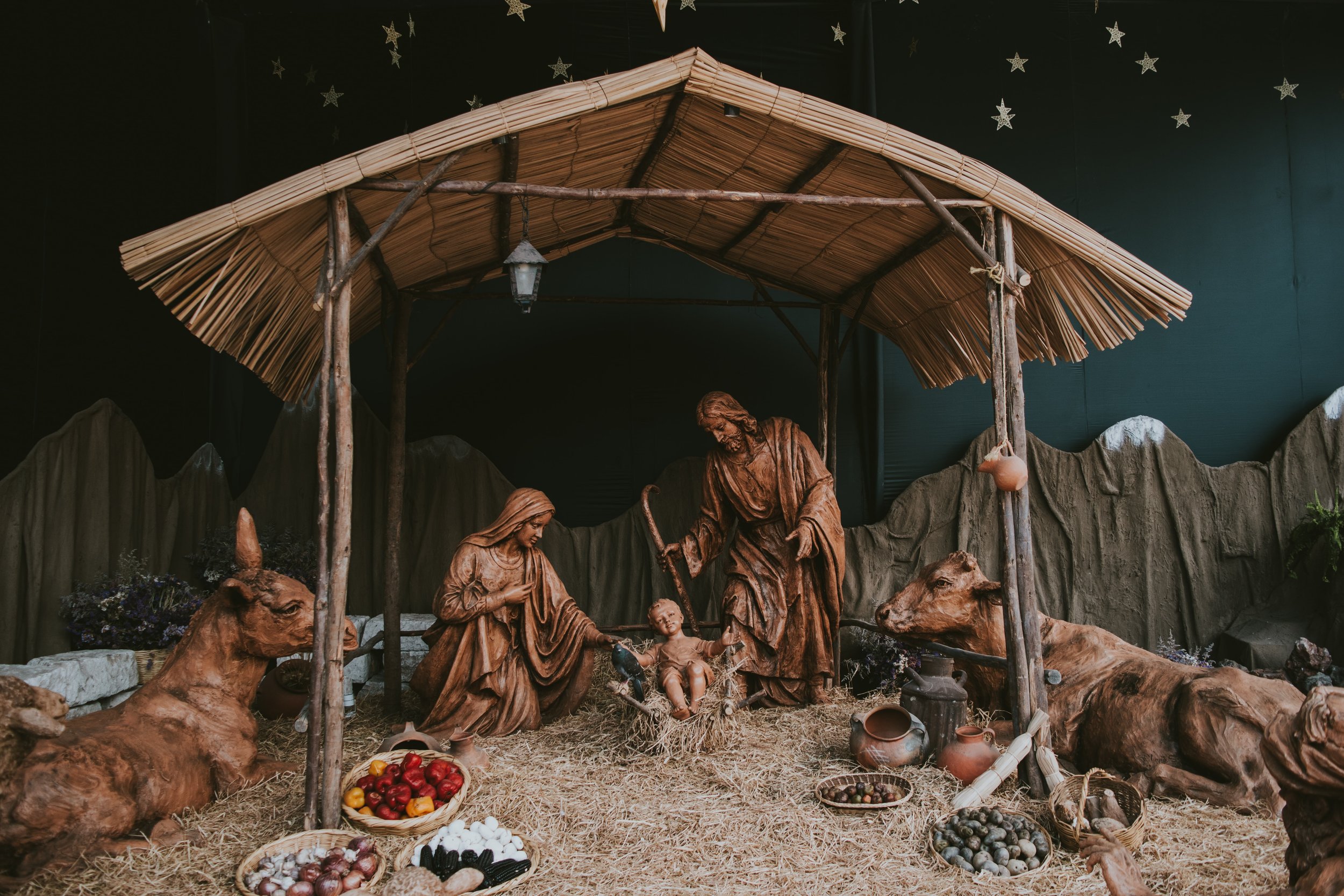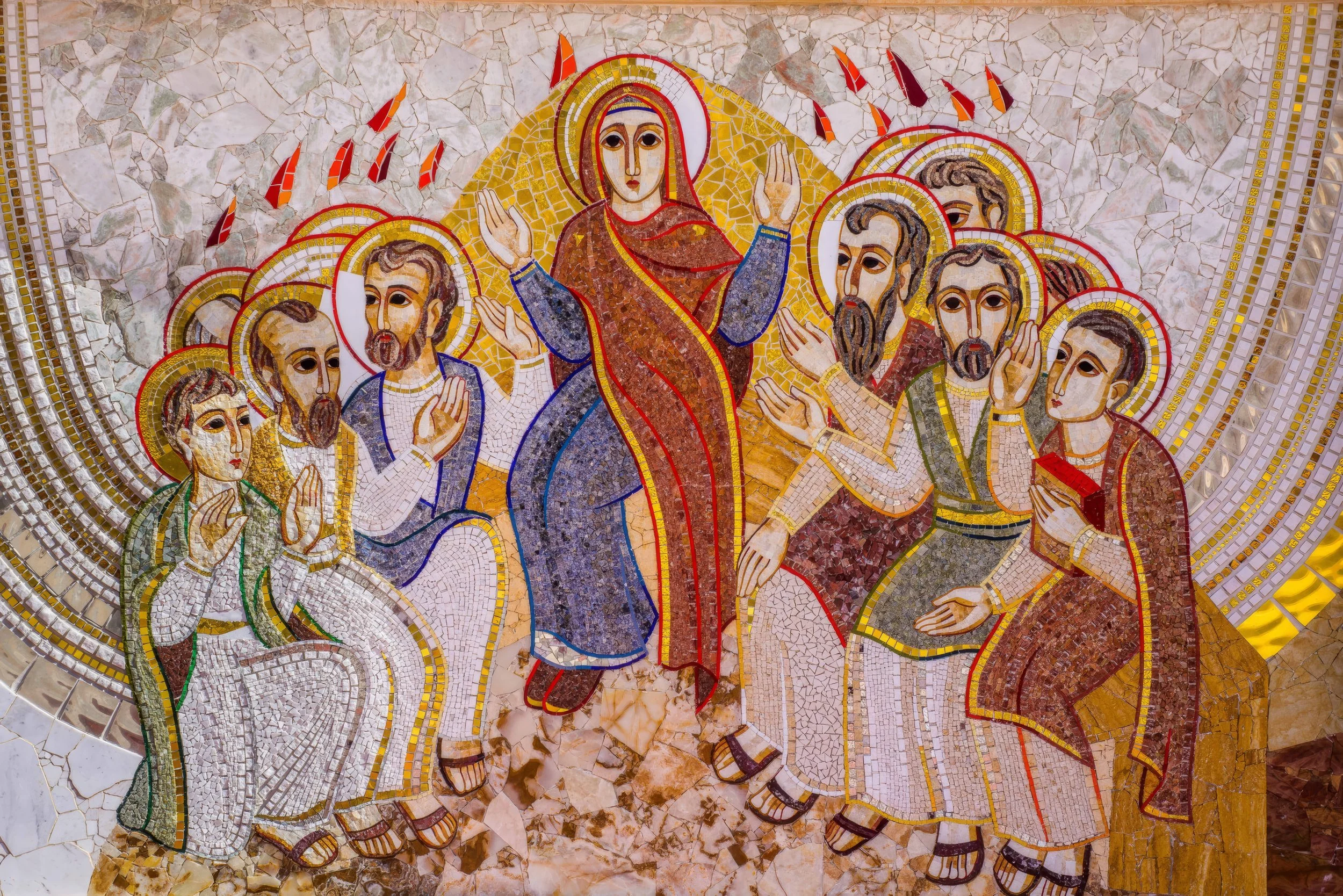Forgiveness is the first shape salvation takes in our lives. Through confession we experience forgiveness from God and are initiated into the ministry of reconciliation. We are then sent out to practice this ministry, first in the Church and then in the world. I say ‘practice’ here to cut against the notion that forgiveness is something at which we are immediately skilled. Forgiveness is a journey, the steps of which sometimes take months or years each. But forgiveness is real and it can bring us freedom from the power of our wounds. For this to happen, though, we have to get real about those hurts we would most like to avoid. Forgiveness begins where we really need to forgive, or it does not begin at all.
Read MoreIn the past, I’ve written that healthy shame will turn toxic unless acted upon and held in health by a power beyond itself. Individuals and communities—including churches—will repeat cycles of toxic shame until someone intervenes. I have seen in pastoral conversations many attempts to ‘manage’ the voice of shame by negating it. We do this either through ignoring it or by trying to persuade ourselves that shame can tell us nothing and is merely a figment of a general atmospheric moralism. But no matter how boldly we shout I am not ashamed! we still are.
Read MoreThis post is about a way to approach contemplative prayer. I freely admit from the outset that I am no master of this art of ultimate trust in God’s love for me. Almost twenty years into my journey as an Anglican and over thirty into my life as a Christian, I am still unlearning the engrained habits of self-sufficiency.
Read MoreThe beginning of the 18th Century saw a dramatic decrease in religious fervor, though not necessarily in religious discipline or witness. The post-reformation period saw a community attempting to maintain a witness in a world that was seeing the growth of rational thought and scientific discourse. In terms of the Church, several important events took place.
Read MoreAs we turn in this series to address my own tradition of Anglicanism and the major tendencies within it, we have to start by acknowledging that much of what makes Anglicans who they are arises out of the history of the place where they learned to pray.
Read MoreI remember walking into the Dormition Cathedral in the town center of Vladimir, just east of Moscow, now almost twenty years ago. My first impression was how warm it was as I walked in through the door into the vestibule. As I was accustomed to the temperate winters of Southern California, the Russian cold was living up to its reputation.
Read MoreWhat Anglicans think about other ecclesial traditions is frequently asked in our Inquirers’ Class each year and in pastoral correspondence with visitors. In this post, we will start with the common question concerning our relationship with the Roman Catholic Church.
Read MoreThe terms of this satisfaction emerge in dire tones as Anselm’s treatise turns, in its second part, to his revelation of God’s salvation offered through Christ the God-man.
Read MoreMartin Thornton said of St. Anselm of Canterbury that he “occupies a place in English spirituality not unlike that of Chaucer in English letters. He is the father-founder who first brought all the essential elements together, who gave the school its clear character and stamp. In Anselm, English spiritual theology is embodied and potentially formed; formed as a young man who still needs to mature but who is no longer a child” (English Spirituality, 156). Anselm was a Benedictine monk who occupied the Archbishopric of Canterbury during the tumultuous period following the Norman Conquest at the end of the 11th Century. Like many in the English school of Catholic theology, his writings were imaginative if not always precise.
Read MoreIt was the first funeral that I remember attending. It was for a boy my age, and I was a young boy. I can recall the commemorative photo of him on display and thinking, ‘I look like him.’ Unlike many funerals I’ve since attended, the body of the departed was present with us, and the casket was open so that everyone present could process forward and say goodbye. It all seemed like it could barely be real.
Read MoreAnglican Catholics are defined by a prayerful encounter with the Scriptures in conscious dialogue with the Church and her saints. To read the Scriptures as an Anglican Catholic means to be fully and robustly Anglican—to grow into the maturity of the Church’s threefold Rule of Mass, Office, and Personal Devotion—and to be fully and robustly Catholic—anchored to the Faith once delivered to the saints and confessed everywhere, always, by all, in the undivided Church through the ages.
Read MoreIn Part 1 of this mini-series, we discussed how our reading of Scripture always takes place within a reading tradition. We may be conscious or unconscious of that tradition, but it will influence us in either case. Anglican Catholics read the Scriptures in interaction with the tradition of the ancient Church and what became the Christian West. In the last post, we explored how the New Testament itself bears witness to a tradition of reading the Scriptures as fulfilled in the Person of Jesus Christ, through whom the Scriptures are read as either anticipation or remembrance. As we turn now to the Middle Ages and beyond, we will look at how a unique spirituality emerged in the English Catholic Church, which became, in its time, the patrimony of the Anglican Catholic expression of the Christian life and its approach to the Scriptures.
Read MoreEveryone reads Scripture after a tradition. Sometimes, that tradition is frightfully novel and idiosyncratic, even egotistical. Most of the time, however, when a person reads Scripture, they are reading it after the manner of someone who came before them, who initiated them into that tradition. The person who teaches us to read traditions us in a way of reading. The parents, pastors, teachers, mentors, and friends among whom we have read the Scriptures are all influences that have contributed to our reading tradition.
Read MoreThe ambient Christianity of Southern California tends to be evangelical and non-denominational. In these churches, Bible exposition comprises the entirety of Sunday service, and individual reading forms the main activity of Christian daily life. Reading the Bible is seen as the primary occasion for encountering God, and this encounter with God has a transformative effect. There tends to be, as well, a focus on the power of extemporaneous reading. I have often seen a numinous application of that Augustinian exhortation to “take up and read!” Within these communities, there is often a dichotomy in practice between expositional preaching, which scrupulously follows the literal sense of the Scriptures, and private devotions that attempt to derive God’s will simply by opening and reading in any given place. This Biblicist emphasis can incline one to believe that anything less than this predominant presence and authority of Bible study in a church’s practice presents a dangerous diversion from the solely reliable stream of divine truth.
Read More“Now is not the time for this.” I can think of few phrases that so capture the spirit of our age and its perspective as this. We are obsessed with schedule and itinerary and the control we believe they give us. Life must be arranged and it must be optimized. But as we all know, reality does not yield in this way, and few things reveal the objectivity and intractability of reality as death. We do everything we can to defer and distract from our reckoning with death; it’s never quite the right time to consider it, after all. And so we must see it as a severe mercy that we are halted this day and called to remember again.
Read MoreThe Church fathers taught that the Spirit’s primary ministry is to re-produce Christ within the Christian. This is not to say that there is more than one Christ, but rather Christ means to become fully and truly present in the life of every Christian as He is, while making them that which they are called to be. As this work unfolds, the fellowship of the Church matures in the godlike character of agape, or the love that is uniquely God’s to bestow and enjoy. But before we are united in love as members of one another, before we are made perfect as the living members of the Body of Christ, we will experience the work of personal perfection and the manifestation of Church unity through what the Scriptures call the ministry of reconciliation.
Read MorePentecost is a feast of joy in the Lord’s renewal of His people’s spirits and His whole creation through the giving of the Torah. As the 16th Century Rabbi Judah Loew ben Bezalel notes, “Man’s connection to Torah represents the fruit of the soul God placed within, and its ability to produce spiritual bounty … Without Torah, he remains in that state; but once he receives Torah, he realizes his potential as adama to bring forth bountiful produce.”
Read MoreThe Holy Spirit is the Lord and Giver of life, eternally breathed forth by the Father through the Son. Yet that life always has a shape, and the shape of God’s life is relational. Father, Son, and Spirit share an eternal communion with each other, without beginning or end. Out of the abundance of their eternal communion they created the heavens and the earth in the beginning. The Father spoke the Word, His Son, in the Breath of the Spirit and the world was made. Again, out of the abundance of their triune love, they provided salvation to our shipwrecked race. The Father sent His only-begotten Son to redeem the death-afflicted creation by pouring out the Holy Spirit to usher it into the fullness of life again. Our life as Christians is a life shaped by our relationship to the Father in the Son by the Spirit. We are what we are because of the life we have been made to share with them.
Read MoreThe Orthodox priest Fr. Alexander Schmemann calls the Sacrament of Confirmation “the personal Pentecost of every man,” the effect of which is to consecrate him as a temple of the Holy Spirit to inaugurate his new life as a kind of living liturgy. In the next few posts, I would like to explore what is this new liturgical life we have received through Baptism and Confirmation, and what it means for us, each and all together, to be the living Temple of God.
Read MoreConfirmation is one of the seven sacraments of the ancient faith. Sometimes called ‘chrismation,’ owing to the long-standing practice of using blessed oil (or chrism) as part of the rite, Confirmation bestows a unique grace to the baptized Christian, by which the nascent gifts of the Holy Spirit are stirred up in them and by which the Christian is sealed as belonging to Christ. The stirring up from within and sealing from without bestow strength upon the Christian, so that they may carry out their vocation as a member of the congregation of the faithful.
Read More



















